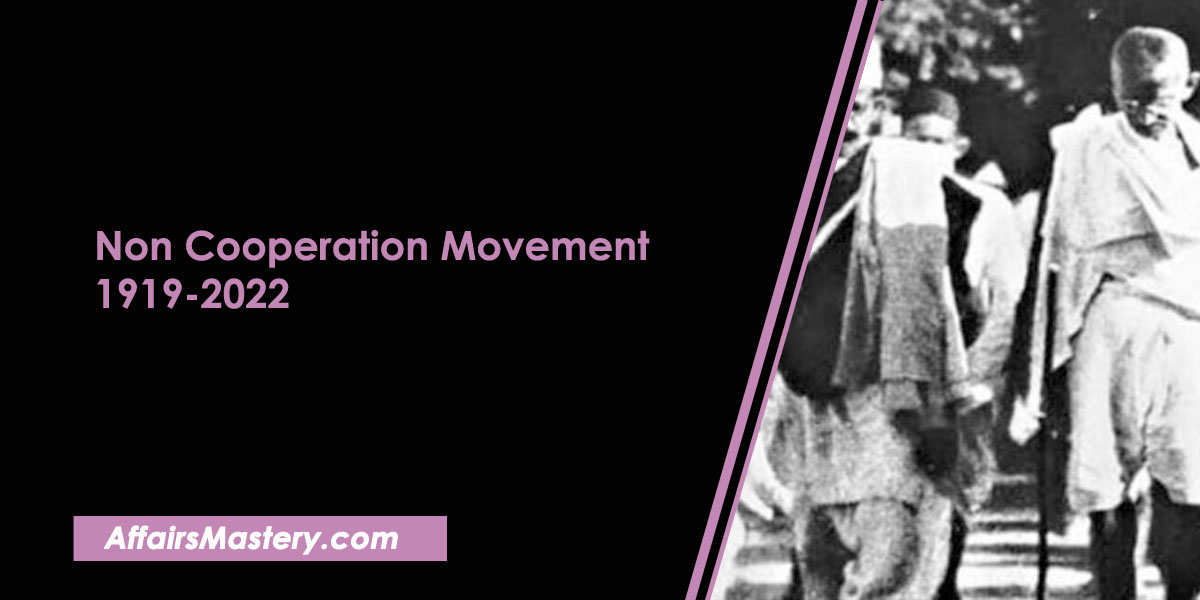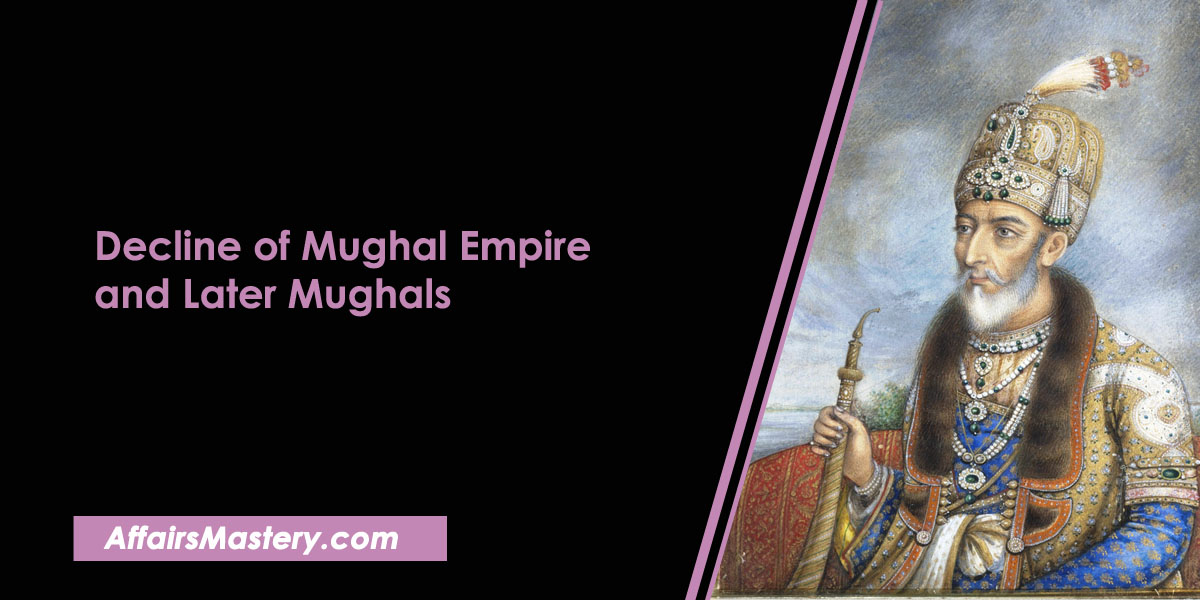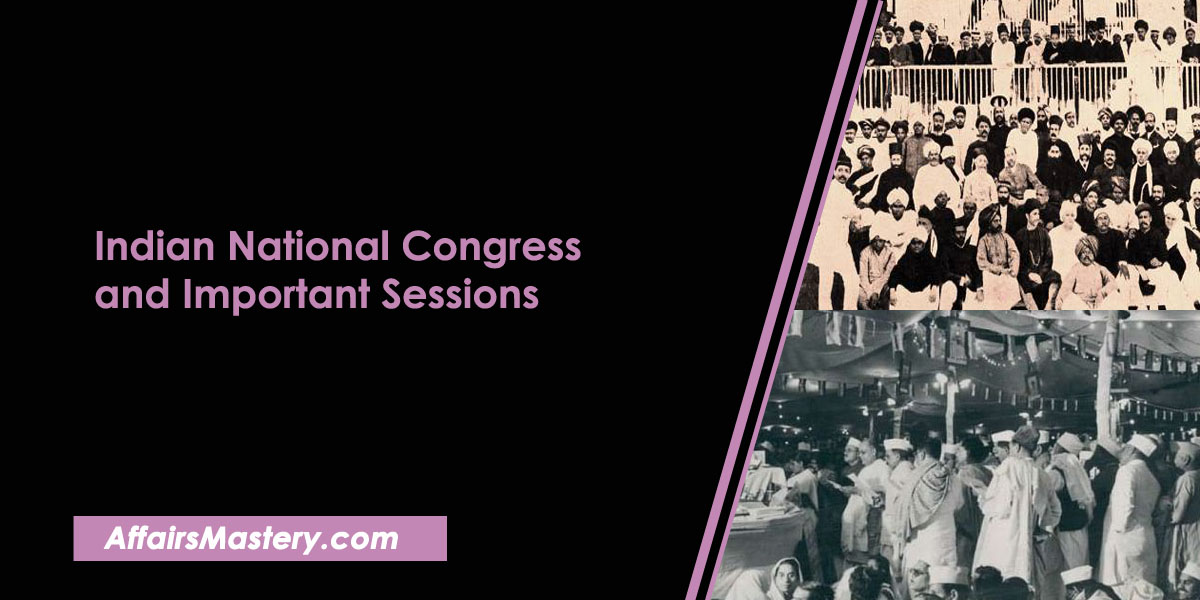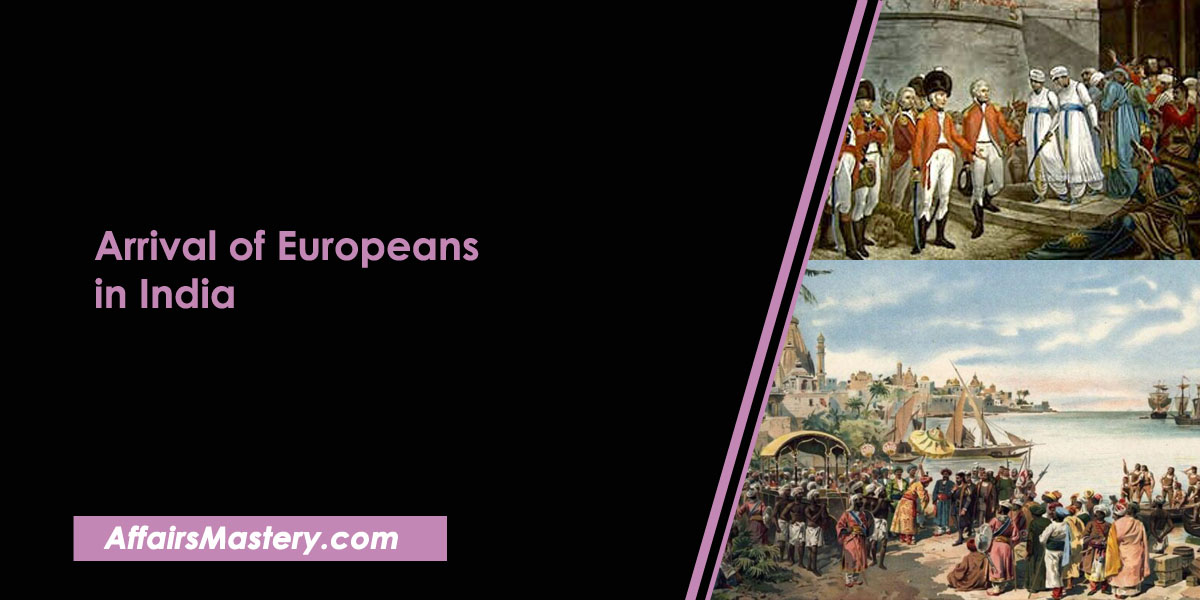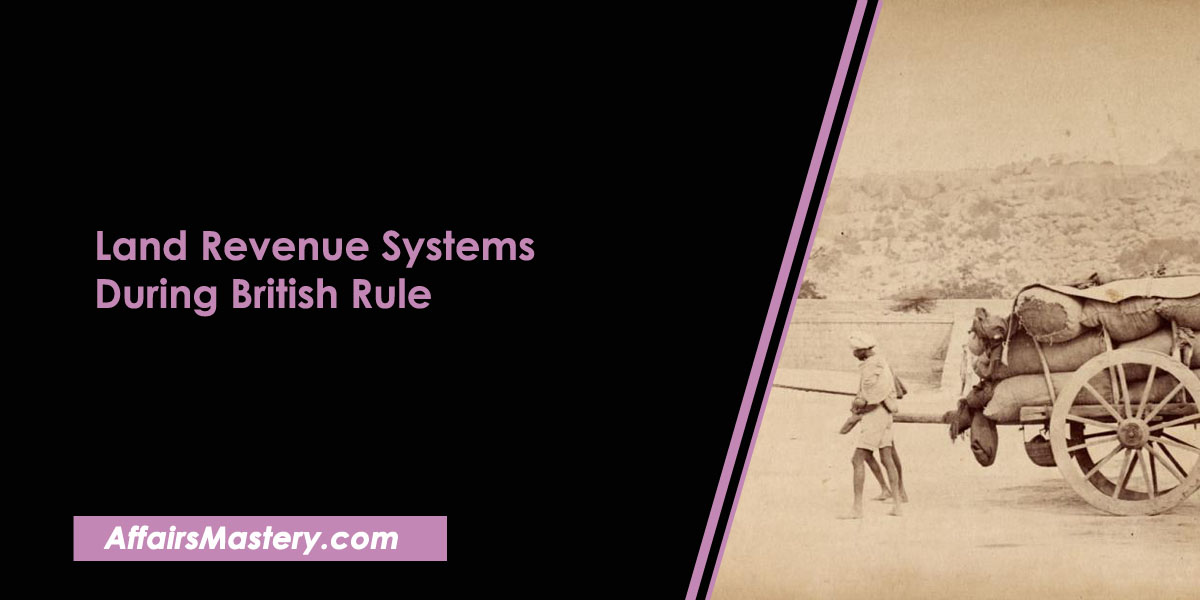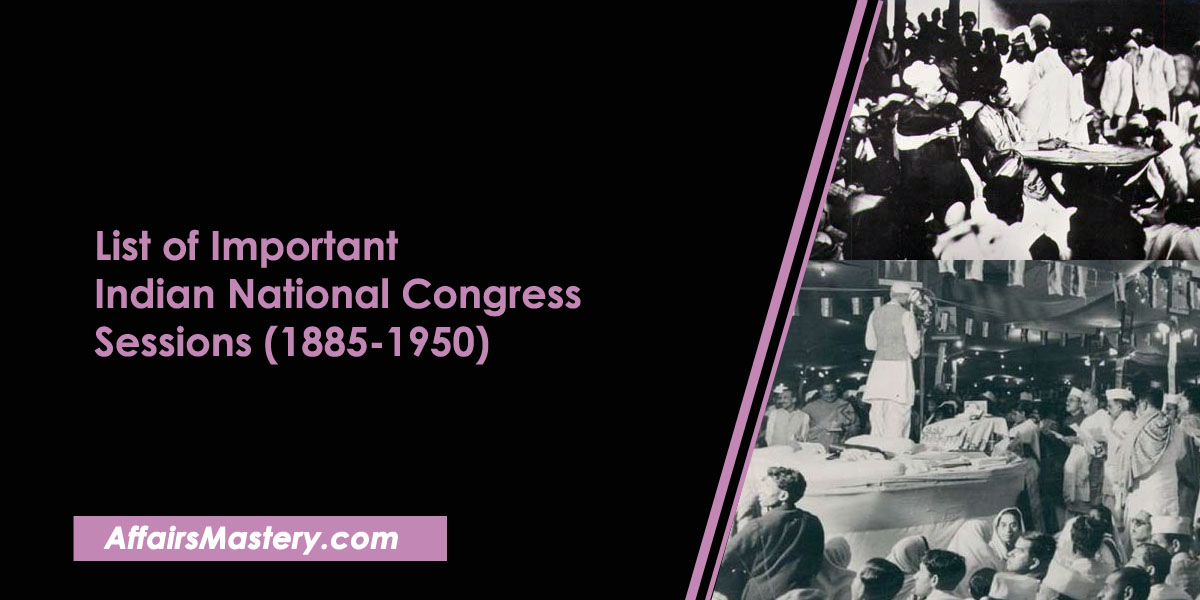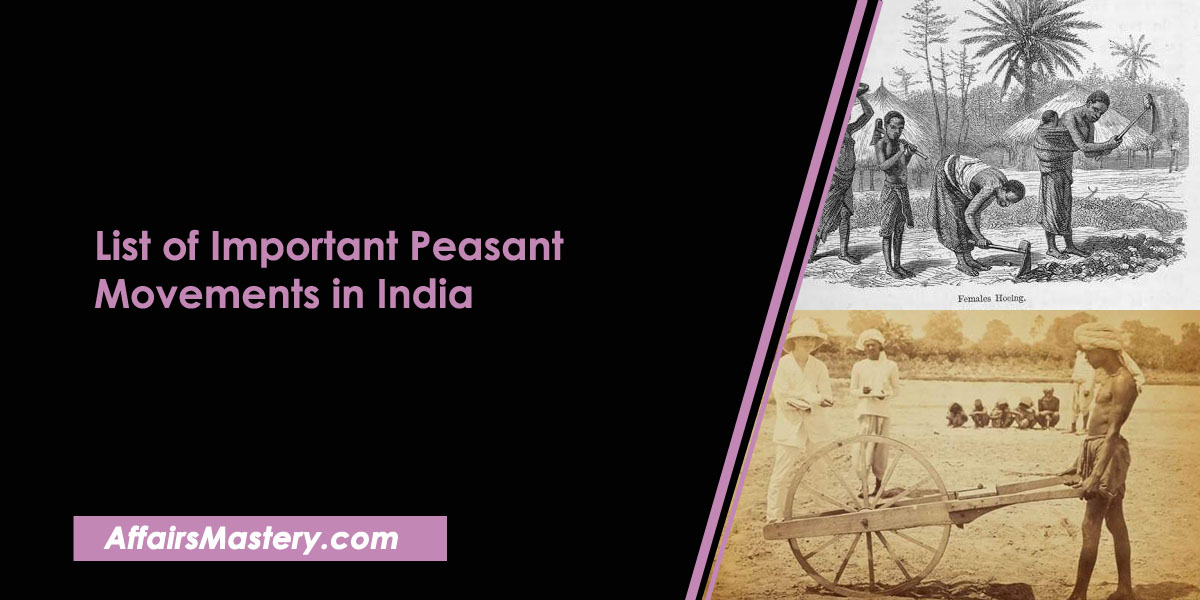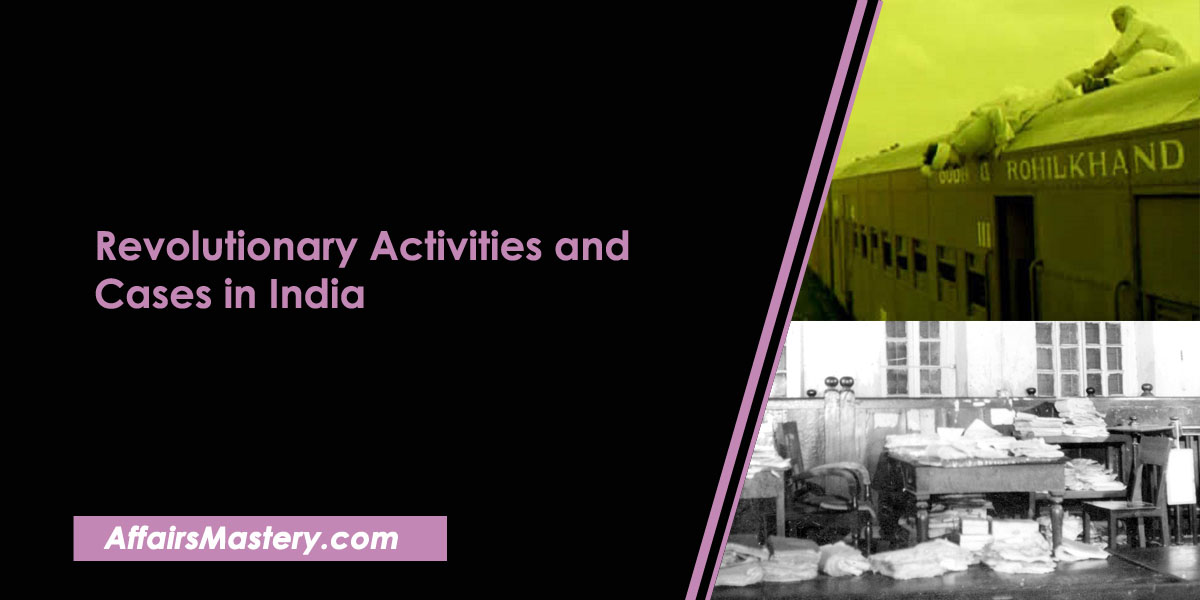Non Cooperation Movement (1919-1922)
The Non Cooperation Movement is an incredibly important part of Indian history and has a great significance for government exams such as the UPSC, UPPSC, other State Exams and One Day Examinations. Throughout Indian history, there have been various movements to gain freedom from the Britishers and other oppressors. These efforts were made by brave individuals who fought for their rights and ultimately achieved independence.
- About
- Brief Introduction of Khilafat Movement
- Non Cooperation Movement – Plot
- Non Cooperation Movement – Beginning
- Non Cooperation Movement – Action
- Contemporary protest and local movements
- Non Cooperation Movement – Reaction
- Non Cooperation Movement – Climax
- Non Cooperation Movement – Conclusion
- Related articles
About
- Non cooperation movement (NCM) was a mass movement that was organized in 1919-1922 along with Khilafat movement.
- NCM and Khilafat both began with different issues, but they choose the common path of “non-violence”.
Brief Introduction of Khilafat Movement
- After the First World War Britain divided the Ottoman empire of Turkey, and removed the Khalifa from his power.
- This has caused a great deal of anger among the world’s Muslim population, as they view it as an insult to their Khalifa and disrespect for their beliefs..
- In India Ali brother, Shaukat Ali and Mohammad Ali started the movement against the British government.
- In the First World War Turkey was with the allied force (Germany and Austria).
Non Cooperation Movement – Plot
- The economic havoc caused by First World War.
- Rowlatt Act, Martial law in Punjab and the brutality of Jallianwala Bag Massacre.
- The failure of Montagu-Chelmsford reform (1919).
Non Cooperation Movement – Beginning
- We can say that it was the beginning of the Gandhian way of movement.
- As Gandhi ji arrived in India in 1915.
- Gandhiji became the president of “All India Khilafat committee”.
- However Gandhiji was in fully support of Khilafat but Congress has some issue.
- On the 1st of August in 1919, Mahatma Gandhi initiated the Non Cooperation movement which was a major milestone for India’s independence struggle.
- Common man entry – 4 Anna (25 paise).
- Against of this movement – S.N Benerrji (Indian Liberation Federation), Anni Besant, Mohd. Ali Jinnah, Tej Bahadur Sapru, Shankar Nair, Kherpade.
“There is no instrument so clean, so harmless and yet so effective as non-cooperation. Judiciously handled, it need not produce any evil consequences. And its intensity will depend purely on the capacity of the people for sacrifice”
– Mahatma Gandhi Ji
Non Cooperation Movement – Action
- Spread of Non Violence message.
- Boycott of British Title and Goods.
- Gandhijji left the title of “Kaiser-i-hind”.
- R.N Tagore left the title of “Knighthood”
- Promotion of Swadeshi (Hand-woven).
- Khadi and Charkha (Wheel) became a symbol of the Movement.
- Thousands of Students left the schools and colleges to join the movement.
- Middle class people, Businessman and peasant took part in the movement.
- Unfortunately, Bal Gangadhar Tilak died on 1 August,1920.
- Tilak fund launched after the death of Bal Gangadhar and approx 1 crore amount was secured at that time.
- Women took part in large number and offer their ornament in the Tilak Fund.
Contemporary protest and local movements
- Protest against “Union Board Taxes” in Midnapur (Bengal), Chirala-Pirala and Pedanandipadu (Guntur, Andhra Pradesh).
- Protest of staff of Assam and Bengal railways.
- Protest of labourers of Assam Tea Plantations.
- Protest against the India visit of “Prince of Wales”, not celebrated his welcome.
- Awadh Kisan Andolan and Eka Andolan of Uttar Pradesh , Moplah Revolt (Malabar, Kerala),Sikh Andolan in Punjab.
Non Cooperation Movement – Reaction
- Government declared Congress and Khilafat unlawful and illegal.
- Mohd. Ali (Ali Brothers) was the one who got arrested because of the movement.
- Gandhiji also wrote letter to Governor General Lord Reading by mentioning that, “Release everyone, open freedom press, Civil liberaties and we will stop NCM”. Lord Reading said NO.
- Gandhi ji was arrested and public meetings were banned.
Non Cooperation Movement – Climax
- On 5th Feb 1922, In a small town name Chauri Chaura (Gorakhpur), a protesting mob (3000+) killed 22 policeman after a conflict.
- This incidence was so shocking to Gandhi ji that he immediately took back the movement, showing how much it had affected him and his beliefs.
- Nationalist leaders Chitranjan Das, Motilal Nehru, Subhas Chandra Bose, Jawaharlal Nehru criticized Gandhi’s decision.
- Gandhi ji was arrested and sentenced 6 years in jail.
Non Cooperation Movement – Conclusion
- Despite the failure of the movement, it has created a huge impact on the people of the Nation.
- For the first time after the 1857 revolt, a massive amount of people participated in the protest against the British government to fight for their right to self-governance, or “SWARAJ”. This was a powerful demonstration that showed how unified and determined they were.
If you find our content helpful and interesting, please consider joining us on Telegram @affairsmastery_official to show your support. We would really appreciate it!
Related articles
- Important Battles in Indian History
- Important treaties in Indian history
- List of Foreign Travellers who came to India
- List of Governor General of India and Viceroy of India
- Robert Clive – Important Short Notes for Exams
- Warren Hastings – Important Short Notes for Exams
- Lord William Bentinck – Important Short Notes for Exams
- Lord Canning – Important Short Notes for Exams
- Lord Mountbatten – Important Short Notes for Exams
- C. Rajagopalachari – Important Short Notes for Exams
- Lord Wavell – Important Short Notes for Exams
- Lord Linlithgow – Important Short Notes for Exams
- Lord Willingdon – Important Short Notes for Exams
- Important Personalities related to Social Movements of India
- List of Important Personalities of Indian Freedom Struggle
- List of Important Books on Revolt of 1857 and their Author
- Important Leaders of 1857 Revolt and their places
- Constituent Assembly of India and its Composition: Important Short Notes
- Important Tribal Movements in India
- Direct Action Day 1946: Important Short Notes for Exams
- Interim Government of India, 1946 and its members
- Important Socio Religious Reform Movements in India – Short Notes
- Khilafat Movement (1919-1924) – Important Short Notes for exams
- Lucknow Pact, 1916 – About, Features, Outcome (Important Short Notes)
- C R Formula or Rajaji Formula, 1944 – About, Main Points (Important Short Notes)
- Wavell Plan, 1945 – About, Main Points (Important Short Notes)
